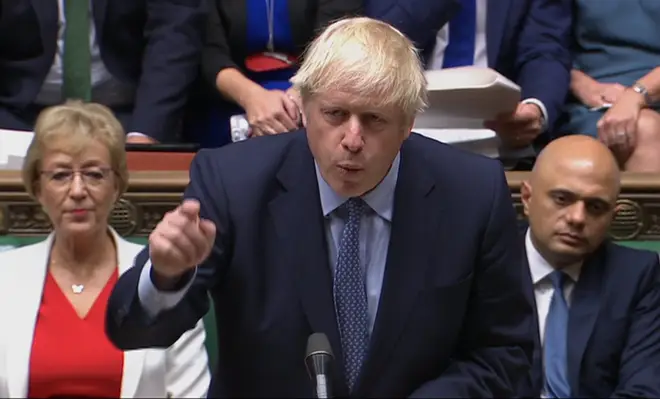
Paul Brand 10am - 12pm
26 September 2019, 20:18 | Updated: 26 September 2019, 20:21
The Prime Minister has "succeeded because we're all discussing his language instead of what he wants to avoid: the consequences of a no deal Brexit," Labour MEP tells Nigel Farage.
Nigel asked whether Jess Phillips was right to say Boris Johnson's language was "designed to cause hatred".
"Not only is she making a fair point, but I think it's a deliberate strategy by the Prime Minister because here we all are now talking about whether it's appropriate to describe people in that way, rather than looking at what the Bill actually does, and far from being a Surrender Bill it's actually a protection of Britain bill.
"Because a no deal Brexit from the European Union would be catastrophic for Britain and that is what the Prime Minister wants to avoid discussion on, the actual practical consequences of a no deal Brexit."
"In a way he's succeeded, hasn't he? We're all discussing the language he's using."

The two politicians discussed hypocrisy in Parliament, and returning to the topic of language, Nigel said: "It strikes me as being a bit rich when Jess Phillips said publicly 'I will knife Corbyn in the front not the back'."
He then mentioned John McDonnell's words, which McDonnell had quoted in a speech, and played a clip from David Lammy who had called Boris Johnson and Jacob Rees-Mogg "Nazis" and then said this language "wasn't strong enough."
"Isn't it hypocritical to criticise a Prime Minister for using words like 'surrender and betrayal' when much worse has been repeatedly used against him?" asked Nigel.
Corbett agreed and said all offensive language wasn't acceptable, especially unacceptable for the "Prime Minister, no less, to start using language that is deliberately chosen, probably premeditated, as part of his political strategy.
"That's the qualitative difference. And look, he's succeeded. We're all discussing the words he's using instead of the real threats to Britain of a no deal Brexit."
Watch the debate above.